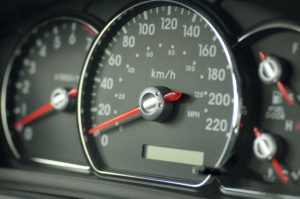Which Is Higher, Your Food Bill or Your Tax Bill?
How high is your tax bill? Would you say you spend more on taxes than you do on food? What about clothing and shelter; do you spend more on them than you do on your taxes? The answer might surprise you. That’s because in actuality you probably spend more on your taxes every year than you spend on all three of those things combined. That’s according to the Tax Foundation, which claims that Americans pays more in taxes every year than they do for essential necessities.
According to the Tax Foundation, Americans will pay $4.85 trillion in taxes in the year 2015 between federal and state taxes. That is approximately 31 percent of the country’s total income. Meanwhile, based on data from the Bureau of Economic Analysis the Tax Foundation estimates that the country will spend about $4.3 trillion in 2015 for basic necessities such as food, clothing and housing.
So do these numbers represent a real issue for the country and its citizens? That depends on how you look it. On the down side, the difference between spending on the basic essentials and taxes is getting worse. Whereas in 2012, the difference was about $150 billion, in 2015 it will likely be about $550 billion. That’s not a good sign. However, the Tax Foundation does not decipher spending between the different classes, so the number could be somewhat misleading.
In any case, there is no question that Americans are paying a hefty tax bill every year and the numbers would appear to indicate that that tax bill is only going to continue to rise. If you are interested in learning more about keeping your tax bill as low as possible, then contact us at GROCO today at 1-877-CPA-2006, or click here.
College Funding: Investing Versus Borrowing
College Funding: Investing Versus Borrowing If something is worth $1, would you rather pay $1.46 for it, or would you prefer a price of $0.66? That, in a nutshell, is a choice that families must make as they prepare to pay for the cost of college education for their children. Saving and investing for college…
What Real Estate Investors Need To Know About Property Management
What Real Estate Investors Need To Know About Property Management By James Kobzeff Once you purchase a real estate rental property, you virtually become the CEO of your own small business. Sure, you feel good about becoming a landlord and owner of your own private money-maker, but unless it’s raw land, your work has just…
Rent Vs. Buy Your First Home
Rent vs. Buy Your First Home Should you rent or should you buy your home? It takes more than looking at your mortgage payment to answer this question. This calculator helps you weed through the fees, taxes, and monthly payments to help you make a good financial decision. Click the “View Report” button for a…
IRS Announces 2015 Standard Mileage Rates
IRS Announces 2015 Standard Mileage Rates By Alan Olsen, CPA, MBA (tax) Managing Partner Greenstein Rogoff Olsen & Co. LLP Although most people typically use their vehicles to commute back and forth to work, there are many individuals that are required to use their personal vehicles as part of their job. Did you know that…



